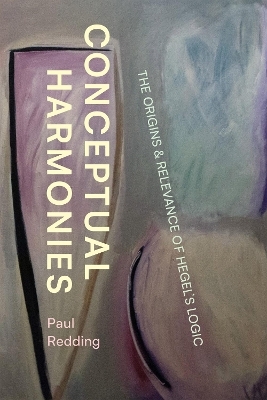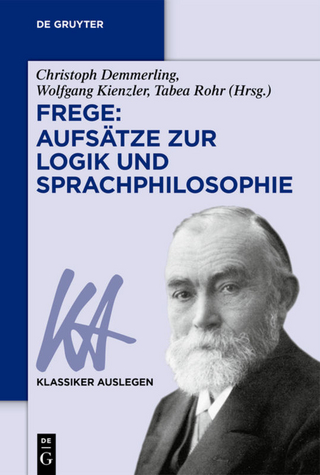
Conceptual Harmonies
University of Chicago Press (Verlag)
978-0-226-82607-3 (ISBN)
Conceptual Harmonies develops an original account of G. W. F. Hegel’s perplexing Science of Logic from a simple insight: philosophical and mathematical thought have shaped each other since classical times. Situating Science of Logic within the rise of modern mathematics, Redding stresses Hegel’s attention to Pythagorean ratios, Platonic reason, and Aristotle’s geometrically inspired logic. He then explores how later traditions shaped Hegel’s world, through both Leibniz and new forms of algebraic geometry. This enlightening reading recovers an overlooked stream in Hegel’s philosophy that remains, Redding argues, important for contemporary conceptions of logic.
Paul Redding is emeritus professor of philosophy at the University of Sydney. He is the author of Continental Idealism: Leibniz to Nietzsche and Analytic Philosophy and the Return of Hegelian Thought.
Hegel’s Texts: Translations and Abbreviations
Preface
Introduction
Beginning: Hegel’s Classicism
1 Logic, Mathematics, and Philosophy in Fourth-Century Athens
2 Hegel and the Platonic Origins of Aristotle’s Syllogistic
3 The General Significance of Neoplatonic Harmonic Theory for Hegel’s Account of Magnitude
Middle: Classical Meets Modern
4 Geometry and Philosophy in Hegel, Schelling, Carnot, and Grassmann
5 The Role of Analysis Situs in Leibniz’s Modernization of Logic
6 Hegel’s Supersession of Leibniz and Newton: The Limitations of Calculus and Logical Calculus
End: The Modern as Redetermined Classical
7 Exploiting Resources within Aristotle for the Rehabilitation of the Syllogism
8 The Return of Leibnizian Logic in the Nineteenth Century: From Boole to Heyting
9 Hegel among the New Leibnizians: Judgments
10 Hegel beyond the New Leibnizians: Syllogisms
Conclusion: The God at the Terminus of Hegel’s Logic
Acknowledgments
Notes
Bibliography
Index
| Erscheinungsdatum | 02.05.2023 |
|---|---|
| Zusatzinfo | 28 line drawings |
| Sprache | englisch |
| Maße | 152 x 229 mm |
| Gewicht | 399 g |
| Themenwelt | Geisteswissenschaften ► Philosophie ► Logik |
| ISBN-10 | 0-226-82607-4 / 0226826074 |
| ISBN-13 | 978-0-226-82607-3 / 9780226826073 |
| Zustand | Neuware |
| Informationen gemäß Produktsicherheitsverordnung (GPSR) | |
| Haben Sie eine Frage zum Produkt? |
aus dem Bereich


